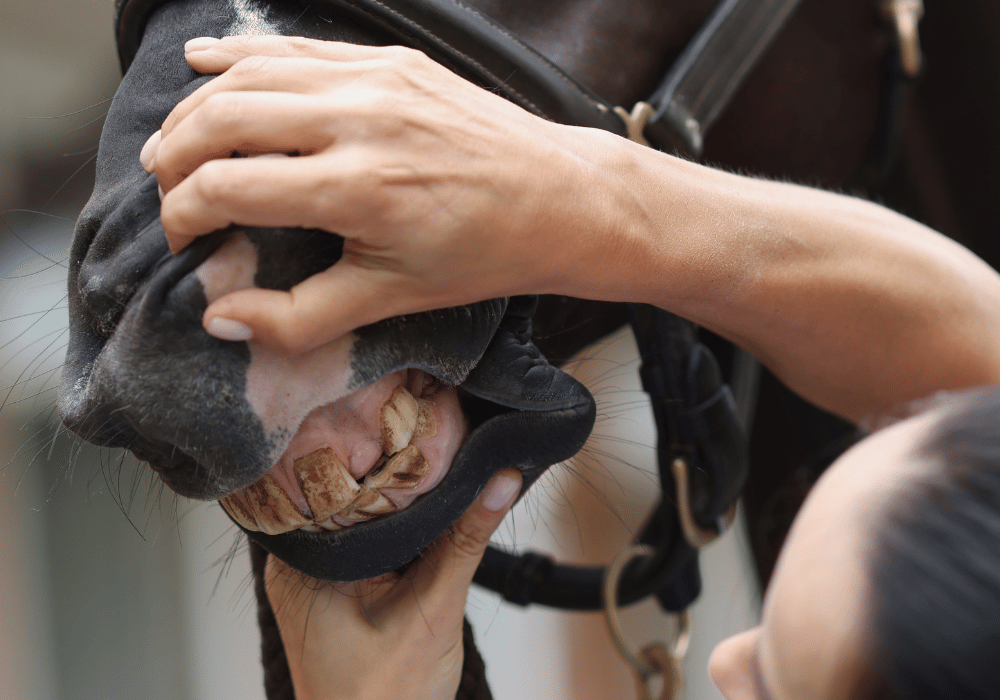Caries refers to the erosion or decay of the tooth. Whilst untreated dental caries can lead to tooth fractures and infections, early intervention can help minimise the damage and prevent these more serious problems. This blog article outlines what peripheral caries are, their causes and how they may affect a horse’s dental health.
What Are Peripheral Caries in Horses?
Caries can either be peripheral or infundibular. In this blog, we are going to discuss peripheral caries, which are found on the edges and up the sides of the tooth.
Peripheral caries may produce no obvious symptoms, so it is important to have your horse’s teeth examined regularly by your equine dental vet. However, symptoms such as ulceration, dropping food, difficulty swallowing, hypersalivation, bad breath and a runny nose or nasal discharge can indicate a dental problem.
What Causes Peripheral Caries?
Peripheral caries can affect any of the horse’s teeth, and they are often seen in horses with other dental problems. Bacterial buildup - which may be caused by a pH imbalance or high-carbohydrate diet - results in tooth decay.
As the tooth erodes, the roughened surface allows tartar to build up and causes food to stick to and pack around the tooth. This further contributes to tooth decay as more bacteria builds up.
Are Peripheral Caries Harmful?
Dental caries can lead to more serious problems, such as diastema formation (i.e. gaps between the teeth) and gum disease.
As peripheral caries advance, the tooth may start to fracture. Often, once a tooth has fractured, removing the affected tooth is the only option. Older horses are also more likely to require extractions as there is sometimes not enough tissue to hold the teeth in place.
Can Peripheral Caries be Corrected?
Provided the caries and any other dental problems are identified early enough, they can be corrected and further problems prevented. This can take several months, and may be more difficult in older horses.
Equine Dentistry at Avonvale Equine Vet Practice
Horses are often very good at hiding pain or discomfort. Therefore, regular dental check ups are vital to ensuring your horse’s mouth is healthy and that the horse is comfortable. Dental problems can be very uncomfortable and painful for the horse, and they can lead to a loss of appetite, digestive problems and weight loss if left untreated. Dental pain or discomfort may also lead to poor performance or behavioural issues when being ridden.
At Avonvale Equine Vet Practice, we have a team of experienced and highly qualified equine dental vets. Our equine dental vets are well-equipped to carry out routine equine dentistry as well as advanced procedures, including extractions on all equines. Furthermore, the facilities at our equine vet practice near Banbury allows us to carry out advanced and emergency diagnostics, treatments and surgical procedures. Register your horse, pony, donkey or mule with our independent equine vet practice today.








